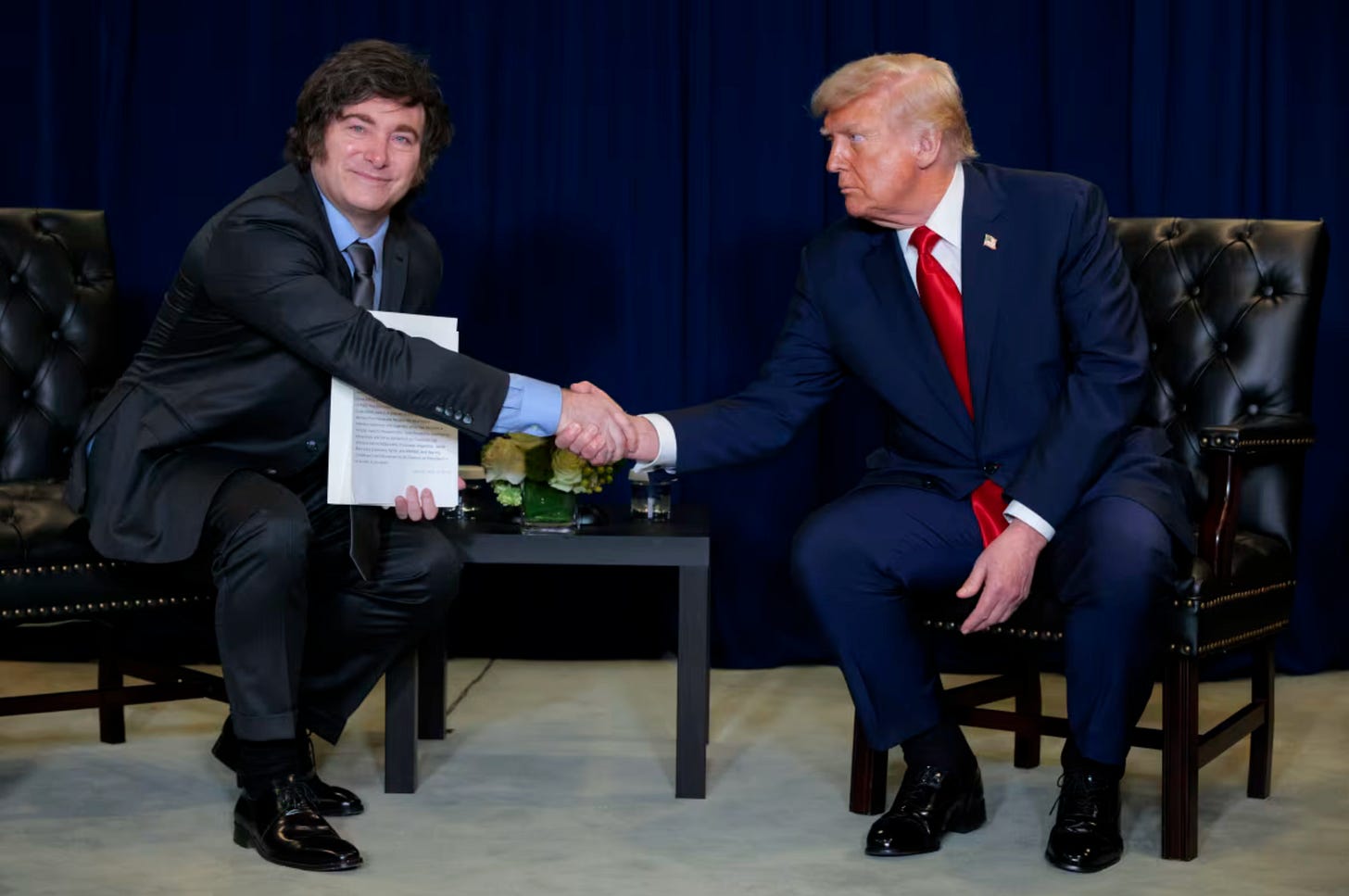Energy Bind
Argentina’s troubles and how they might resolve.
“You never let a serious crisis go to waste. And what I mean by that [is] it’s an opportunity to do things you think you could not do before.” – Rahm Emanuel
One of the great mysteries of our time is why so few media outlets or geopolitical analysts incorporate energy as a core input to their explanations of contemporary events and predictions of the future. While no single parameter is all-encompassing, energy is among the most powerful, and exploring where significant oil and gas resources and infrastructure exist often yields useful insights that defy consensus.
Consider Argentina. As early as September 10th, we postulated that the US might be tempted to bail out the country, largely because it is home to one of the largest and most exciting shale oil and gas plays in the world:
“The Trump administration may feel compelled to mount a rearguard action in Argentina on behalf of loyal ally President Javier Milei, whose political party was roundly defeated in local elections over the weekend. Although the results do not directly impact his standing at the federal level, the electoral setback is spooking markets just as oil and gas production in the country’s massive Vaca Muerta shale resource is taking off. The country’s bonds and currency both plunged on the news.”
Less than two weeks later, things evolved as we anticipated:
“The Trump administration pledged on Monday to do whatever is necessary to support Argentina’s struggling economy, throwing a lifeline to the country’s embattled president, Javier Milei, ahead of legislative elections there next month.
Treasury Secretary Scott Bessent said that the United States is prepared to offer loans to Argentina’s central bank, direct currency purchases and purchases of U.S. dollar-denominated Argentine government debt from Treasury’s Exchange Stabilization Fund to keep Argentina’s economy afloat. The value of Argentina’s currency, the peso, has fallen in recent weeks amid concerns about Mr. Milei’s political grip on government.”
Over at CNN, the news unsurprisingly was framed through the lens of raw partisan politics. In an analysis titled “The Argentina bailout is all about propping up a Trump ally,” the words “oil,” “gas,” and “Vaca Muerta” don’t even merit an appearance. Instead, it all comes down to ideology:
“The US’s sudden love for Argentina’s economy ‘doesn’t make any sense from a realist, strategic perspective,’ Nate Schenkkan, an independent international relations expert, said in an interview. ‘This kind of stuff only really makes sense within an ideological framework.’”
If one eschews Mr. Schenkkan’s ideological framework and turns instead to brute physics and finance, the potential for significant deals to be struck between Argentina and the Trump administration appears clear. If we are right, the impact on geopolitics and energy will be substantial. Let’s make a few predictions based on the pattern of evidence.


